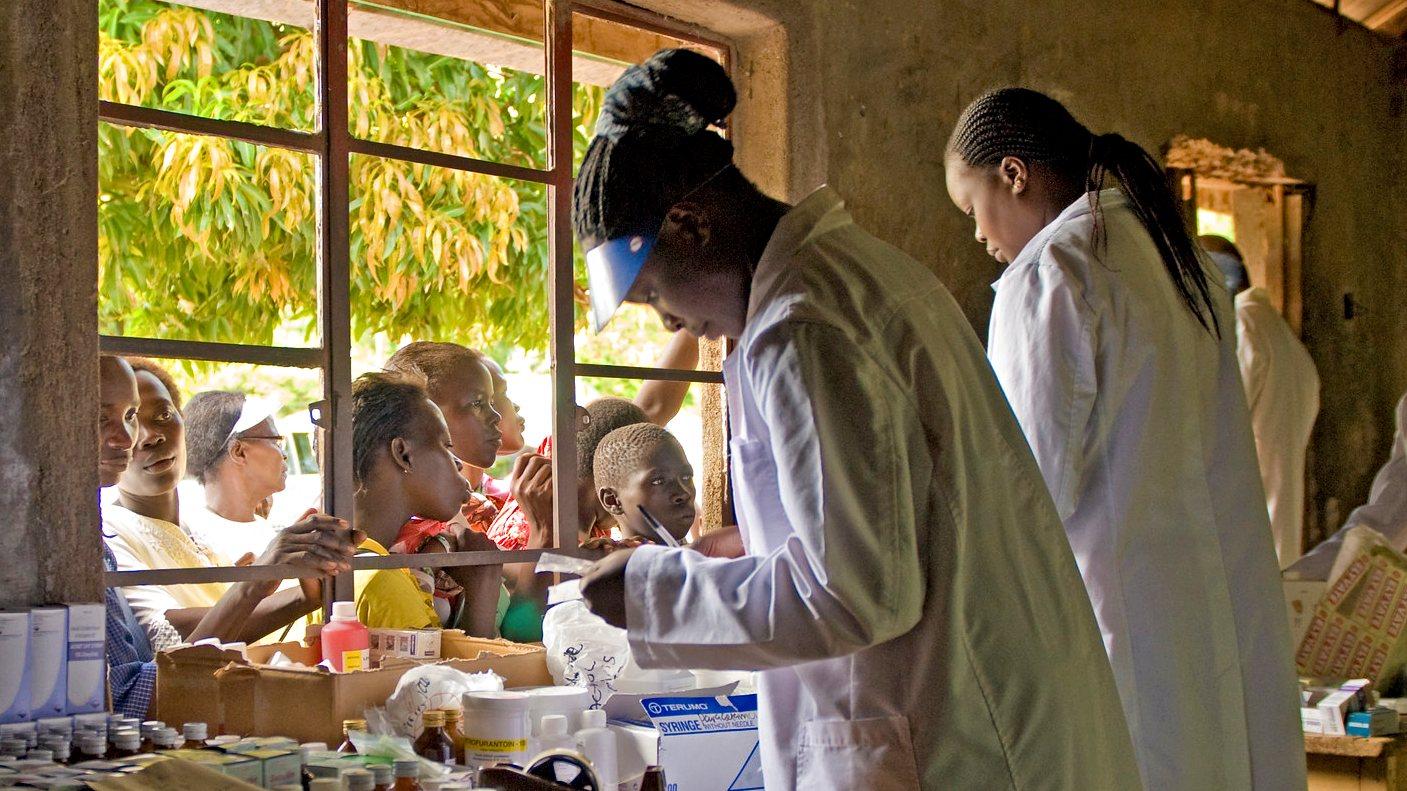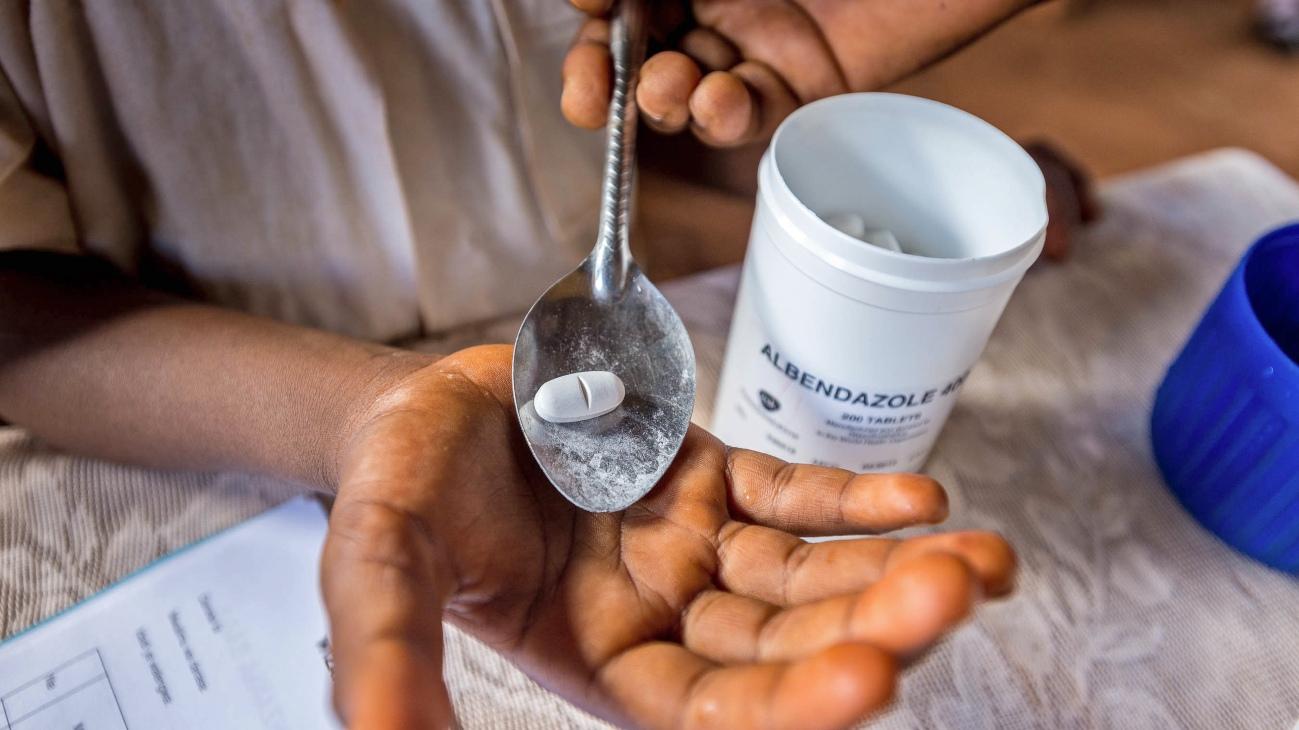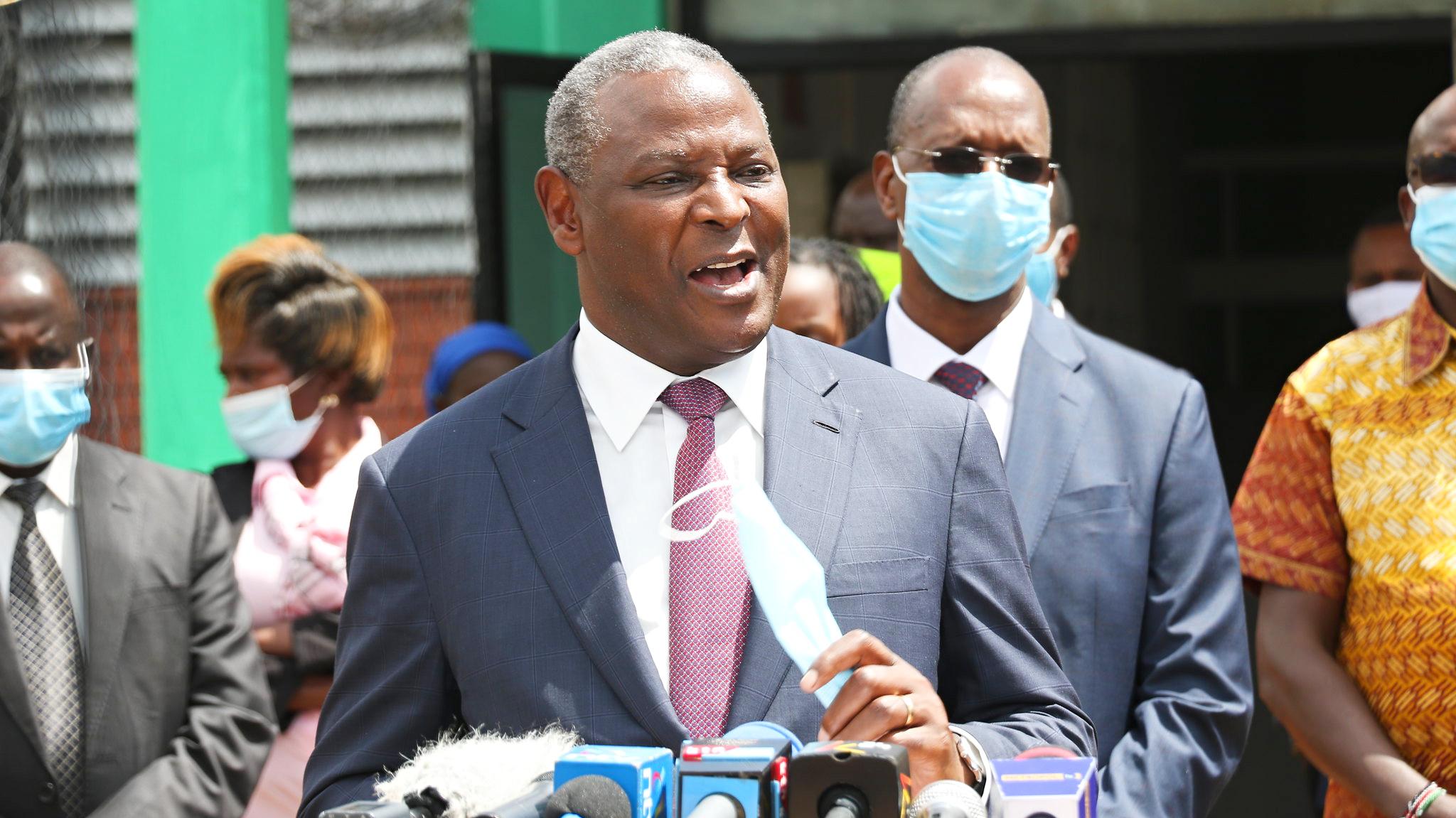Ahead of elections in 2021, the Ugandan government has manipulated its COVID-19 public health response for political gain. As face mask wearing has become increasingly encouraged, government leaders, opposition parties and citizens have recognised the potential of masks for political messaging and defiance. Is this a dangerous politicising of public health or a worthy form of expression in an otherwise oppressive political climate?
This blog is part of the series Shifting Spaces, an emerging timeline of COVID-19 responses from Kenya, Malawi, Tanzania and Uganda from the LEAD research project at the Firoz Lalji Centre for Africa.
Right from the infancy of COVID-19 in Uganda, President Yoweri Museveni heeded the recommendation of health experts and made the wearing of face masks in public mandatory. Prior to registering the first case of the virus, Ugandan authorities responded proactively, rolling out a public health campaign and instituting stringent lockdown measures – actions that have helped slow the growth of confirmed new infections.
Politically, there has been a multi-partisan backing for most of the edicts aimed at stemming the spread of the virus, but partisan differences are now emerging along lines of colours and symbols associated with face masks. As was the case with the distribution of food relief in previous months, commentators similarly argue that political actors are instrumentalising face masks for political profit. Politicians and political parties are distributing face masks customised with their colours and symbols.
Are political face masks – codified clothing – being deployed for election propaganda? Is wearing face masks an overt expression of one’s political orientation, either temporary or permanent or both?
Political dressing?
In Uganda, face masks have become political. The government issued guidelines concerning design and material composition, but did not place restrictions on their colouring and symbolism. With elections fast approaching and public rallies banned for the foreseeable future, political actors are utilising this opportunity for political dressing, producing and distributing masks with their colours and symbols. This is being carried out by many politicians running in the forthcoming elections as well as all the major political parties.
Government appears to have recognised the significance of face masks for politicking. In sourcing 35 million masks to distribute to Ugandans aged over six, as part of state-sponsored relief efforts, the State Minister for Investment Evelyn Anite warned that they would shun those with ‘political party colours like Yellow, Red, Blue… [and] … symbols as Government will only buy masks that aren’t politically branded…’ Yellow is the colour of the ruling National Resistance Movement (NRM); blue is of the Forum for Democratic Change (FDC); and red is increasingly associated with People Power, a political movement founded and led by musician turned opposition politician Robert Kyagulanyi, alias Bobi Wine.
The minister’s statement seemed to have become the official government position when Judith Nabakooba, the cabinet spokesperson and Minister for ICT and National Guidance, confirmed that public-funded masks would have non-partisan colours. Although commentators had their reservations, the government initially gave Ugandans the benefit of the doubt. The maiden batch of relief face masks had grey, white, black and other non-partisan colours.
It did not take long for the government to make a discreet U-turn, to tap into the potential of masks for political dressing. Subsequent consignments increasingly have yellow face masks and none in the colour of opposition parties. Ministers also lead distribution efforts. Many now question whether the NRM is using a public health platform and state resources to enhance its political capital, as they did with relief food. Relief mask distribution will cost the taxpayer Shs 81 billion (about $22million), a significant increment from the initial budget of Shs 35 billion (approximately $9million).
Government distribution of yellow masks has drawn mixed reactions from the public. Some like Simon Kaggwa Njala, a prominent morning show host on NBS Television, are opposed to the move, saying: ‘Enduring the pain of Covid-19 lockdown is stressful enough. Asking us to wear yellow masks is double tragedy. To that effect, I beg to defy. I’ll wear any other mask. No yellow on my mouth. No! Hell NO!’ Meanwhile others like Andrew Nsubuga believe there is nothing unusual about it: ‘Y’all incoherently ranting over the yellow Gov’t masks! Like you do not knw wat forms a gov’t is a party that won Elections. Whether or not you like them the NRM is the party in government.’ The exercise that began on 10 June 2020 had seen 6 million masks distributed in 22 border districts by the end of that month.
It is not uncommon for the government to attempt to monopolise space for politicking, particularly political dressing. In what seemed to be a crackdown on its broader aspects, the government earlier banned the civilian wearing of red berets, which are associated with Bobi Wine who has declared his intention to run for president in 2021 with his People Power movement. ‘The beret, it’s our symbol. When we wear those berets we identify not just with People Power but with the cause for a better Uganda,’ People Power spokesperson Joel Senyonyi told Reuters. Wine and his supporters have also been sporting other red outfits such as overalls, shirts and sweaters. A core part of his signature clothing, for Wine and his supporters the beret has come to be a ‘symbol of resistance’. But the beret (without the People Power emblem), which also forms part of a military outfit for a section of the army, has now been included in a gazette of military clothing for which possession means citizens are ‘liable on conviction to imprisonment for a term not exceeding five years’.
Research shows that political colours and associated emblems play a vital role as visual symbols of political struggle. A study by Susan Sawer of the Australian National University published in 2007, for instance, finds that ‘political colours help to create and sustain collective identities and illustrate the role of affect in political life’. But colours and emblems, she argues, not only facilitate visual association with ‘the cause’ as well as ‘the outward display of values’, but equally perform a vital function in ‘sustaining a sense of community’.
Wearing masks as a political statement
Many Ugandans have embraced the president’s order to wear face masks in the public. For many, wearing a mask is a political statement and a medium for self-expression – an opportunity to choose sides in a fast brewing election fight. Given the entanglement of political allegiance and mask production, wearing a particular coloured mask is read by many Ugandans as a statement of solidarity – revealing that the wearer shares the concerns of a political actor, their values and ideologies, and endorses their manifesto. Thus Ugandan political actors are unsurprisingly clued in to the formidable symbolism of political masks, some of which are further personalised with the faces of candidates running for elective office. Face mask distribution by the leading actors offers a glimpse of the entanglements of the COVID-19 response and politics.
The diverse shades of masks on the streets of Kampala reveal which group of political masterminds spotted this opportunity for political mobilisation first. While People Power political masks were the first of their kind I saw in Kampala, they also seem to be the most faded. Based on this methodology of looking at other fadings, it is fair to say that People Power trail-blazed face masks’ instrumentalisation. Lots of have discoloured from deep red to light. However, despite the fading, it is easy to pinpoint People Power masks because of their distinct black trimmings on the edges and the large badge of the movement tacked right in the centre.
Prominent Ugandan columnist Charles Onyango-obbo opines that, in political dressing, ‘Bobi Wine and his #PeoplePower have probably mastered that better than other political actors’. It appears, however, that People Power and opposition parties are simply trying to find innovative ways to politically mobilise and catch up with the NRM whose leaders continue defying mandatory social distancing to perform campaign activities. Unlike opposition politicians, NRM leaders rarely endure arrest and harassment by the security forces. Although new to the game of masks as political dressing, the NRM seems to be flexing its financial muscle by ramping up the distribution of its yellow masks across the country. Taking their cue from NRM leaders, many Ugandans are now acquiring and wearing the yellow face masks as a precaution against harassment by the security forces.
Some Ugandans also expect rewards from wearing masks. These clothing items then become a means to an end, a coping mechanism. Voters strategically instrumentalise the wearing of masks to ‘eat’ from politicians and political parties. For example, Martin Kakooza, an unemployed resident of Katanga slum in Kampala who calls himself a ‘political analyst’, says he has three masks – for FDC, NRM and People Power – which he uses alternates depending on ‘where the money is coming from at a particular point in time … Today you wear NRM to get money from them, tomorrow you wear People Power to get sugar from there. Hahaha…that is how you survive in Kampala.’
Other residents in Kampala make a defiant statement by wearing a face mask of a political actor other than the predominant/ruling one. Considering the brutality with which Ugandan security forces enforce the president’s orders, sporting the masks of opposition figures can be a means of challenging the regime. Yet it may be a risky act: the Local Defence Units (LDUs), who carry arms despite being less trained than soldiers and police officers, have killed a number of people during the lockdown. Although COVID-19 has claimed two lives in Uganda, security forces have killed at least seven people since the lockdown began in March 2020.
Politicising public health
Instrumentalising face masks for political ends does not necessarily conflict with public health. In fact, political face masks shoot two birds with one stone. It enables political actors to achieve their campaign goals while making it tough for those infected with the virus to pass it on to members of the public. The importance of wearing face masks in stemming the spread of the virus is what pushed the WHO to revise its guidelines to countries on 5 June 2020, advocating the wearing of masks in public settings where social distancing cannot be guaranteed.
Yet as political masks in Uganda are principally made from cloth, which makes them less efficacious than surgical and N-95 masks, their proliferation could ruin efforts to combat the spread of the virus. Additionally, most of the relief masks the government distributes are generic ‘one size fits all’, triggering potential problems of fit and leakage of virus-laden particles for users. A recent study whose results were published in the American Chemical Society revealed that fitting cloth masks improperly could leave gaps between the face and the masks leading to a filtration inefficiency of more than 60%. Another study whose findings were published in the British Medical Journal found that users of cloth masks could be vulnerable to heightened risk of infection due to reuse, moisture retention and poor filtration. The same study discovered that medical masks were 53 percentage points more effective than cloth masks in keeping particles at bay. Prioritising distribution of face masks and mandating their use in public therefore gives users a false confidence of protection against the virus, as has been witnessed with large crowds gathering during the nomination of candidates for elections.
The government ought to prioritise public health campaigns aiming to achieve optimal and mandatory use of face masks, but it should not be (covertly) promoted as the sole priority. Other preventive approaches such as social distancing, hand washing, avoiding face touching and regular sanitisation of commonly used surfaces should be promoted in equal stead. Election victory could mean the ultimate end of the instrumentalisation of face masks as political dressing, but a potential escalation of the virus could spell the end of our country, including the very political system being fought over.
Photo: A woman wearing a face mask, licensed under CC BY-NC-ND 2.0. Credit KB Mpofu -ILO





